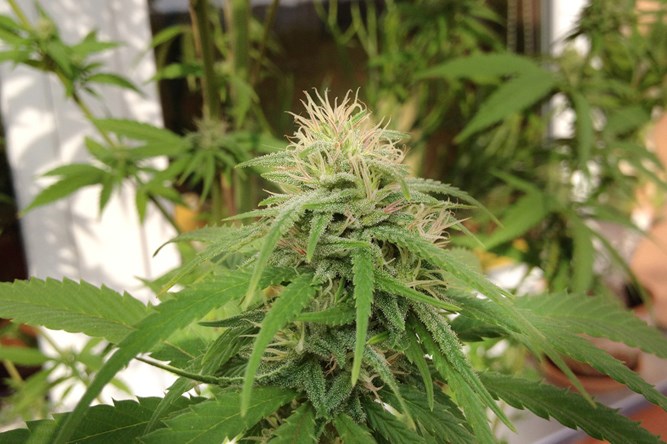A BC Supreme Court case involving cannabis dispensaries in Vancouver could end up having a major impact on the future plans of cannabis retailers who want to stay within the medicinal cannabis framework instead of applying for provincial licences to sell non-medicinal marijuana.
Gibsons-based S&M Medicinal Sweet Shoppe is one of those retailers.
Owners Michelle and Doug Sikora are in the process of getting a temporary use permit from the Town of Gibsons under its new zoning rules, but they do not intend to apply to the province, because it would force them to buy the cannabis they use to prepare edibles and other products through the BC Liquor Distribution Branch.
The Karuna Health Foundation is the lead plaintiff in the case, and Weeds Glass and Gifts, the corporate owners of the first dispensary to open on the Sunshine Coast, also has so-called “public-interest standing.”
At issue is whether dispensaries and compassion clubs should be part of the federally regulated medicinal cannabis market along with the current system of mail-order supply through approved licensed producers.
The judge in the case has reserved his decision.
Michelle Sikora said the short-term goal is to be allowed to stay open without interference until the Karuna decision comes down, a decision she hopes will allow stores like S&M to go on serving clients with doctor approvals for cannabis, separate from the non-medicinal market that opened up Oct. 17.
“There’s people all across the country who can’t get access to their medicine through what the government says is their only option, because it’s being sold to the recreational market,” Sikora said.
Abbottsford lawyer John Conroy, who also argued a major case that led to a ruling recognizing access to medicinal cannabis as a right under the Charter, is one of the lawyers in the Karuna case.
He’s been collecting stories from dispensary and compassion club operators and the people who buy medicinal cannabis from them about how the changes that came into force Oct. 17 have impacted them.
Conroy told Coast Reporter he’s heard that the companies authorized to provide medicinal cannabis via mail-order have been running short of stock, and rotating strikes at Canada Post have interrupted the supply lines for many patients.
He said that all adds to the argument for having a system of local suppliers with micro licences to grow, process and sell to approved patients.
“Medically approved patients have a right of reasonable access to their medicine to prevent a violation of their constitutional rights,” said Conroy, who added the current situation could amount to arbitrarily taking that access away.
“We’re trying to see to what extent this is a problem, and we’re doing two things,” Conroy said. “One is to hear from B.C. people to get that in front of the chief justice quickly as sworn affidavits and have him take that into account [in the Vancouver case]. The other is to check what’s going on across the country in case we need to go to federal court.”
Conroy said the lawyers he’s working with are hoping to appear before the judge in the coming week or two.
In the meantime, the province has so far approved only one private retailer, a store in Kimberly, to sell non-medicinal cannabis.
Most cannabis shops on the Sunshine Coast that are pursing similar licences have remained open since Oct. 17, and Sunshine Coast RCMP have not reported any problems related to the rollout of the new cannabis laws.
The local detachment is working with the bylaw departments at Sechelt, Gibsons and the Sunshine Coast Regional District to monitor any issues around retail sales.



